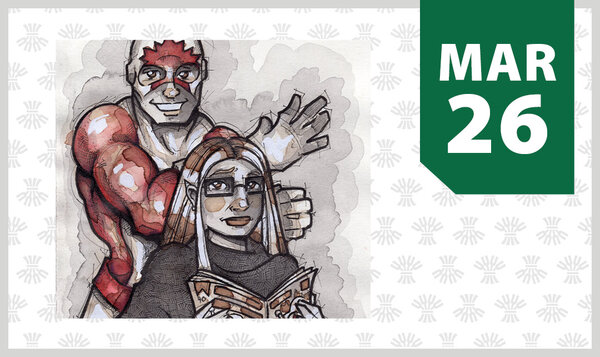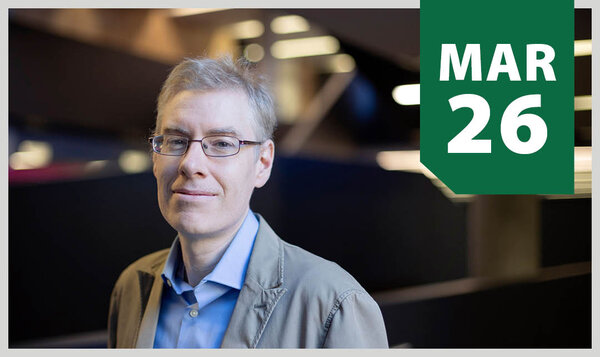
Post-secondary education essential to ‘help navigate this changing world,’ says new USask sociology graduate
Sarah Tut will receive a Bachelor of Arts degree in sociology, with a minor in women’s and gender studies, as well as a Certificate in Global Studies, during 2021 Spring Convocation
By Shannon Boklaschuk
New University of Saskatchewan (USask) graduate Sarah Tut believes deeply in the importance and value of education.
It’s a sentiment Tut is instilling in her four children. She hopes her own post-secondary journey will inspire them to complete their education, no matter what circumstances they face.
“As a Black woman, earning a college education must be essential to develop knowledge and skills to navigate this changing world,” said Tut. “Also, education is a great tool to break the intergenerational cycle of disadvantage and poverty.”
Tut, who is originally from Sudan, moved to Saskatoon in 2010 and began her studies in USask’s College of Arts and Science in 2015. She is now set to receive a Bachelor of Arts degree in sociology, with a minor in women’s and gender studies, as well as a Certificate in Global Studies, during USask’s 2021 Spring Convocation.
“I'm happy I completed my degree finally, but I will miss being on campus,” she said. “It is my community. I (loved) my time there.”
Tut said one of the reasons she chose to pursue her post-secondary education at USask was due to recommendations from friends. She had talked to them “about how they enjoyed their programs and how they loved their professors, and how inclusive and diverse the campus is.”
“So I felt this was the right place for me,” she said.
While pursuing her degree and certificate, Tut worked full-time as a youth worker while also raising her family. In a previous interview, she said she decided to major in sociology after taking some classes that opened her eyes to what’s going on in the world.
“It made me think about all the wars and social issues going on globally, including in my country and why I came to Canada,” she said.
Tut saw sociology and women’s and gender studies as complementary areas of study, and through her courses she learned how the unique intersections of people’s identities—such as gender identity and expression, race, sexual orientation, socioeconomic status, and physical and mental attributes—impact people’s lived experiences in the world. She noted her experiences as a Black woman, a mother and a refugee will not be the same as the experiences of people living with different identities.
“It’s all about thinking critically,” she said.
While Tut was very busy as a USask student, she also took time to enjoy some of the extracurricular activities the campus has to offer. For example, Tut exercised at the Physical Activity Complex (PAC) and served as a volunteer at the Help Centre. A particular highlight of her undergraduate education came in 2018, when she studied abroad in South Africa as part of a history course taught by College of Arts and Science faculty member Dr. Simonne Horwitz (D. Phil). Tut said the experience “opened her mind” as she met new people, travelled in and around Johannesburg, and learned about the history of apartheid and about different religions. The trip also helped her draw parallels between the impact of colonization in Canada and in other countries in the world.
“It was a great experience to be there,” said Tut, who noted that her education through the global studies certificate also informed her “about our rights and responsibility as global citizens.”
Tut said she is grateful for College of Arts and Science professors who make a difference in the lives of their students, such as Horwitz, from the Department of History, and Dr. Martin Gaal (PhD), from the Department of Political Studies. With her newly minted degree, Tut plans to work before returning to USask in 2022 to pursue a master’s degree in sociology or to attend law school.
When she comes back to campus again as a student, Tut said she would like to help grow a community of support for people with similar lived experiences to her own.
“I think minority single mothers like me have a unique challenge on campus,” said Tut, who speaks English as an additional language. “Most people don’t know how l manage my (studies) with four children and a full-time job, while I don’t have a parent or relative in Canada to help me.”
Tut is hopeful her own experiences will help inspire others to pursue their educational goals. She believes her education will be beneficial to her as she moves forward in life.
“Sociology is about thinking critically to look at historical and contemporary society’s issues in the context of race, gender, social class, income, marital status, age, etc. Women’s and gender studies (is) about studying sociology, politics, history (and) psychology through feminist worldviews, in my opinion—so both programs help me see (daily life’s situations) with critical eyes.”


